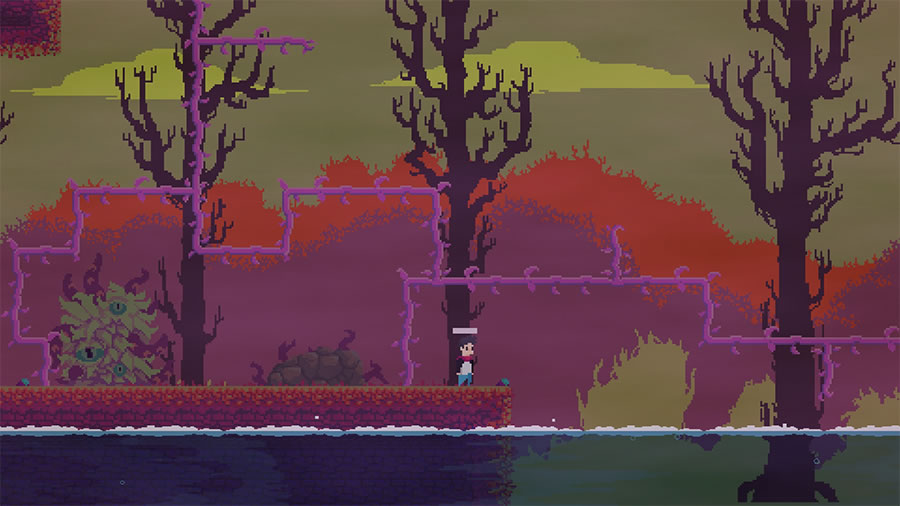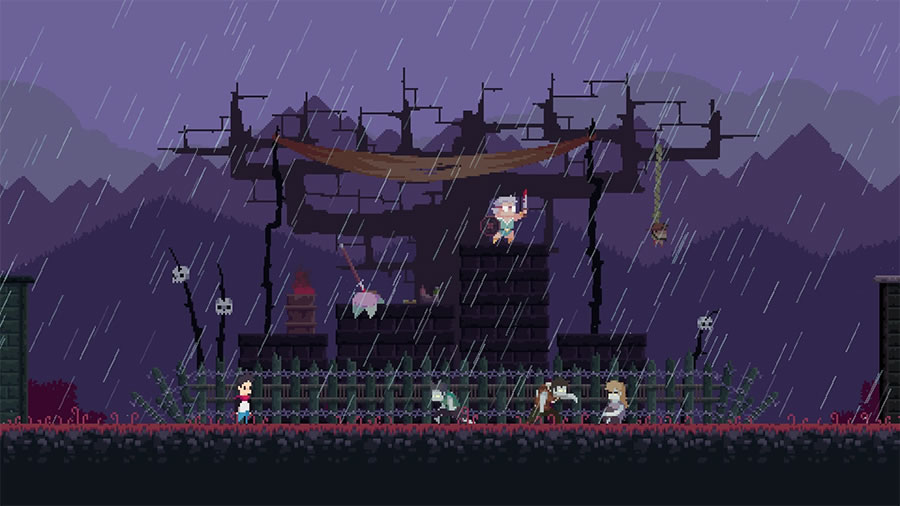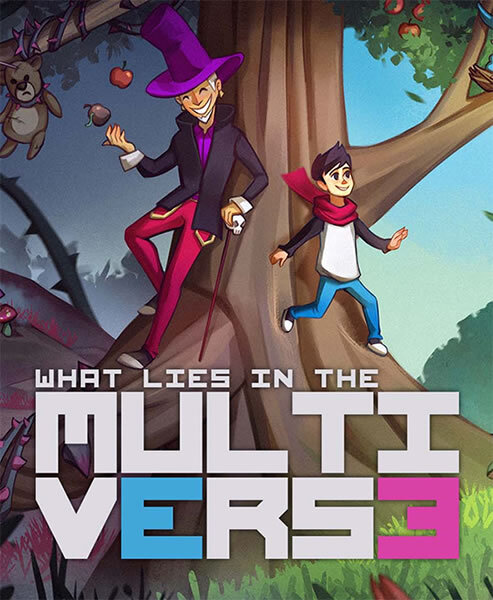- CLASSIC MAGAZINES
- REVIEW CREW
A show recapping what critics thought back
when classic games first came out! - NEXT GENERATION'S BEST & WORST
From the worst 1-star reviews to the best
5-stars can offer, this is Next Generation! - NINTENDO POWER (ARCHIVE)
Experience a variety of shows looking at the
often baffling history of Nintendo Power! - MAGAZINE RETROSPECTIVE
We're looking at the absolutely true history of
some of the most iconic game magazines ever! - SUPER PLAY'S TOP 600
The longest and most ambitious Super NES
countdown on the internet! - THEY SAID WHAT?
Debunking predictions and gossip found
in classic video game magazines! - NEXT GENERATION UNCOVERED
Cyril is back in this spin-off series, featuring the
cover critic review the art of Next Generation! - HARDCORE GAMER MAGAZING (PDF ISSUES)
Download all 36 issues of Hardcore Gamer
Magazine and relive the fun in PDF form!
- REVIEW CREW
- ELECTRONIC GAMING MONTHLY
- ELECTRONIC GAMING MONTHLY RANKS
From Mario to Sonic to Street Fighter, EGM
ranks classic game franchises and consoles! - ELECTRONIC GAMING MONTHLY BEST & WORST
Counting down EGM’s best and worst reviews
going year by year, from 1989 – 2009! - ELECTRONIC GAMING BEST & WORST AWARDS
11-part video series chronicling the ups and
downs of EGM’s Best & Worst Awards!
- ELECTRONIC GAMING MONTHLY RANKS
- GAME HISTORY
- GAME OVER: STORY BREAKDOWNS
Long-running series breaking down game
stories and analyzing their endings! - A BRIEF HISTORY OF GAMING w/ [NAME HERE]
Real history presented in a fun and pithy
format from a variety of game historians! - THE BLACK SHEEP
A series looking back at the black sheep
entries in popular game franchises! - INSTANT EXPERT
Everything you could possibly want to know
about a wide variety of gaming topics! - FREEZE FRAME
When something familiar happens in the games
industry, we're there to take a picture! - I'VE GOT YOUR NUMBER
Learn real video game history through a series
of number-themed episodes, starting at zero! - GREAT MOMENTS IN BAD ACTING
A joyous celebration of some of gaming's
absolute worst voice acting!
- GAME OVER: STORY BREAKDOWNS
- POPULAR SHOWS
- DG NEWS w/ LORNE RISELEY
Newsman Lorne Riseley hosts a regular
series looking at the hottest gaming news! - REVIEW REWIND
Cyril replays a game he reviewed 10+ years
ago to see if he got it right or wrong! - ON-RUNNING FEUDS
Defunct Games' longest-running show, with
editorials, observations and other fun oddities! - DEFUNCT GAMES QUIZ (ARCHIVE)
From online quizzes to game shows, we're
putting your video game knowledge to the test!- QUIZ: ONLINE PASS
Take a weekly quiz to see how well you know
the news and current gaming events! - QUIZ: KNOW THE GAME
One-on-one quiz show where contestants
find out if they actually know classic games! - QUIZ: THE LEADERBOARD
Can you guess the game based on the classic
review? Find out with The Leaderboard!
- QUIZ: ONLINE PASS
- DEFUNCT GAMES VS.
Cyril and the Defunct Games staff isn't afraid
to choose their favorite games and more! - CYRIL READS WORLDS OF POWER
Defunct Games recreates classic game
novelizations through the audio book format!
- DG NEWS w/ LORNE RISELEY
- COMEDY
- GAME EXPECTANCY
How long will your favorite hero live? We crunch
the numbers in this series about dying! - VIDEO GAME ADVICE
Famous game characters answer real personal
advice questions with a humorous slant! - FAKE GAMES: GUERILLA SCRAPBOOK
A long-running series about fake games and
the people who love them (covers included)! - WORST GAME EVER
A contest that attempts to create the worst
video game ever made, complete with covers! - LEVEL 1 STORIES
Literature based on the first stages of some
of your favorite classic video games! - THE COVER CRITIC
One of Defunct Games' earliest shows, Cover
Critic digs up some of the worst box art ever! - COMMERCIAL BREAK
Take a trip through some of the best and
worst video game advertisements of all time! - COMIC BOOK MODS
You've never seen comics like this before.
A curious mix of rewritten video game comics!
- GAME EXPECTANCY
- SERIES ARCHIVE
- NINTENDO SWITCH ONLINE ARCHIVE
A regularly-updated list of every Nintendo
Switch Online release, plus links to review! - PLAYSTATION PLUS CLASSIC ARCHIVE
A comprehensive list of every PlayStation
Plus classic release, including links! - RETRO-BIT PUBLISHING ARCHIVE
A regularly-updated list of every Retro-Bit
game released! - REVIEW MARATHONS w/ ADAM WALLACE
Join critic Adam Wallace as he takes us on a
classic review marathon with different themes!- DEFUNCT GAMES GOLF CLUB
Adam Wallace takes to the links to slice his way
through 72 classic golf game reviews! - 007 IN PIXELS
Adam Wallace takes on the world's greatest spy
as he reviews 15 weeks of James Bond games! - A SALUTE TO VAMPIRES
Adam Wallace is sinking his teeth into a series
covering Castlevania, BloodRayne and more! - CAPCOM'S CURSE
Adam Wallace is celebrating 13 days of Halloween
with a line-up of Capcom's scariest games! - THE FALL OF SUPERMAN
Adam Wallace is a man of steel for playing
some of the absolute worst Superman games! - THE 31 GAMES OF HALLOWEEN
Adam Wallace spends every day of October afraid
as he reviews some of the scariest games ever! - 12 WEEKS OF STAR TREK
Adam Wallace boldly goes where no critic has
gone before in this Star Trek marathon!
- DEFUNCT GAMES GOLF CLUB
- DAYS OF CHRISTMAS (ARCHIVE)
Annual holiday series with themed-episodes
that date all the way back to 2001!- 2015: 30 Ridiculous Retro Rumors
- 2014: 29 Magazines of Christmas
- 2013: 29 Questionable Power-Ups of Christmas
- 2012: 34 Theme Songs of Christmas
- 2011: 32 Game Endings of Christmas
- 2010: 31 Bonus Levels of Christmas
- 2009: 30 Genres of Christmas
- 2008: 29 Controls of Christmas
- 2007: 34 Cliches of Christmas
- 2006: 33 Consoles of Christmas
- 2005: 32 Articles of Christmas
- 2004: 31 Websites of Christmas
- 2003: 29 Issues of Christmas
- 2002: 28 Years of Christmas
- 2001: 33 Days of Christmas
- NINTENDO SWITCH ONLINE ARCHIVE
- REVIEW ARCHIVE
- FULL ARCHIVE
What Lies in the Multiverse
No matter if I'm watching TV or going to the movies, it's starting to feel like the Multiverse is everywhere. But what is the Multiverse? And what exactly lies in it? In order to answer those burning questions, I decided to play through the new game What Lies in the Multiverse. What I discovered was a stylish throwback game with an unpredictable story and some devilishly clever writing. Join me as I reveal why this brand-new side-scroller is not only a great game, but why it's one of the best puzzle platformers since Braid.
This is the story of a bright young boy who has somehow cracked the code of the Multiverse on his computer. That's exciting, but it comes with one larger-than-life surprise guest. His name is Everett and he's a tall, grey-haired magician with a comically large top hat and a purple suit. He reveals that he's been jumping through the dimensions and exploring the Multiverse, something that immediately intrigues the young science geek. Not wanting to be left out, the kid begs to tag along, arguing that he could be a useful assistant. Everett accepts and a brand-new friendship is formed.
What the kid doesn't realize is that his new bestie has quite a colorful backstory. The first sign of trouble is a dimension-hopping gang of Multiverse police officers, who seem to be dead set on arresting Everett and taking his mysterious walking stick. There's also all this talk about a former assistant that hasn't been heard from in years, something that has clearly affected everybody in Everett's orbit. It won't take long before you realize that this fun and exciting joyride through the Multiverse may be fueled by something much darker and more sinister than the kid could have ever imagined. But hey, he's come this far, so he might as well see what happens next.
When he's not trying to make sense of what's going on, the boy will spend most of his time solving a lot of clever platforming puzzles. For as narrative-driven as What Lies in the Multiverse is, you can't forget that this is primarily a side-scrolling puzzle game. The gimmick here is that the kid is able to effortlessly switch between a normal level and an alternate version that is drastically different. For example, the world you're standing in may look green and inviting, but one press of a button will turn that lush environment dark and rainy.
This is good for a number of reasons, starting with the simple fact the level layouts are slightly different. A bridge or wall that might be there in one reality will have disappeared in the alternate dimension. Need to steal the keys off of that scary guy in the bar? Don't worry about it, because he's dead in the Multiverse. Just pocket his keys without the living one ever finding out. Those are the types of hijinks and puzzles you can get into when jumping between different dimensions.
What's great about this game is that the unpredictability is baked in from the very start. You never know where you'll be from one chapter to the next, and there's the fun added surprise of also seeing the alternate versions. In one part of the game you'll snap into an icy world where you'll slip and slide around. Another stage will have you climbing up vines, while another is so poisonous that it will kill you in just a few seconds. One of my favorite chapters will literally flip the gravity, having us push boxes and solve puzzles while standing on the ceiling. And just when you start to get sick of that world, you'll be whisked off to something completely different.
Obviously, this is not the only 2D platformer to use this type of puzzle structure. We've seen this sort of approach done since Braid in 2008, probably well before. But while that aspect might not be original, What Lies in the Multiverse does it better than most. A lot of it has to do with the strong variety of puzzles and the unpredictability of each level. The game also does a good job of incorporating fun items and obstacles. The puzzles are bite-sized and never too challenging, to the point where I never had to resort to the dreaded trial-and-error guesswork. Couple that with the speedy pacing and you have a puzzle platformer that is confident and always in control.
One of the reasons why this works so well is because the story is front-and-center throughout every level. They don't save it for cinemas or special moments, because a conversation can breakout mid-puzzle. Sometimes it's the kid talking to Everett, but just as likely it will be the Multiverse police officers revealing their plans. No matter who it is, every single person in this game is given a personality and a believable motive. We begin to realize that one of the cops has crippling anxiety, while another is hot-headed to the point of being a danger to his entire crew.
There comes a point in What Lies in the Multiverse where you realize that we're not going to sweep the ramifications under the bed. Most other games would use the cool setup to toss us into a bunch of puzzles and then forget about the story or consequences. This is a game that is all about the consequences. It's also about grief and how to cope with loss in a chaotic world. The game isn't afraid to go in some dark and troubling directions, which surprised me given how upbeat and silly things are at the start. Behind the jokes and gags is genuine sadness, something that the characters spend a lot of time addressing in this seven-hour adventure.
But don't get the wrong impression, because What Lies in the Multiverse is also one of the funniest games I've played in a long time. The dialog is snappy in a way you don't normally get in a video game and there's an energy here that is infectious. The game is always ready to zig when you're expecting it to zag, and then will even point out what it's doing in order to subvert your expectations even more. There are some genuinely clever moments that had me howling with laughter, including a few on-running jokes that pay off in spectacular fashion. This game is a masterclass in how to write memorable dialog that will stick with players long after the adventure ends.
And let's talk about that ending. Don't worry, I'm not going to spoil anything, but I will say that What Lies in the Multiverse has one of my favorite endings of all time. This is one of the few games that drags the conclusion out over multiple chapters, giving players the answers and resolutions that they've been searching for. We're shown things that completely reframe the rest of the adventure, to the point where I immediately wanted to replay the game and experience it all over again with a new set of eyes. I can't wait to finally be able to talk to other people who have beaten it.
If it sounds like I'm having a hard time coming up with anything bad to say, it's because I am. I've played a lot of puzzle platformers in my day, so I didn't go into this game expecting to fall in love. And yet, that's the best way to describe it. I love What Lies in the Multiverse. I love the stunning pixel graphics and the expressive animation. I love the weird lands we visit, as well as their alternate dimensions. I love the colorful cast of characters, even those I hated at first. I love it all. Well, I wish that the boy was a little more agile and I kind of hate how fragile the boxes are, but I love everything else. And I have a hunch that you will, too.
HOME |
CONTACT |
NOW HIRING |
WHAT IS DEFUNCT GAMES? |
NINTENDO SWITCH ONLINE |
RETRO-BIT PUBLISHING
Retro-Bit |
Switch Planet |
The Halcyon Show |
Same Name, Different Game |
Dragnix |
Press the Buttons
Game Zone Online | Hardcore Gamer | The Dreamcast Junkyard | Video Game Blogger
Dr Strife | Games For Lunch | Mondo Cool Cast | Boxed Pixels | Sega CD Universe | Gaming Trend
Game Zone Online | Hardcore Gamer | The Dreamcast Junkyard | Video Game Blogger
Dr Strife | Games For Lunch | Mondo Cool Cast | Boxed Pixels | Sega CD Universe | Gaming Trend
Copyright © 2001-2025 Defunct Games
All rights reserved. All trademarks are properties of their respective owners.
All rights reserved. All trademarks are properties of their respective owners.
































